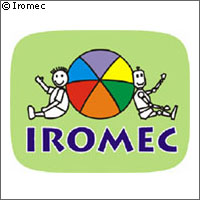Robots to teach disabled children how to play
A new EU-funded project is using robots to help disabled children learn how to play. Playing is an important part of childhood; through play, children learn about the physical and social environment, the self and how to develop social relationships. However, children with cognitive, developmental or physical disabilities may find it harder to play. This affects their learning potential and can result in them becoming socially isolated. The IROMEC (Interactive Robotic Social mediators as Companions) project is investigating how robotic toys can be used to help these children learn how to play and so develop strong social skills. The robots will act as intermediaries, encouraging the disabled children to try out a range of play skills, including solitary play and social play. They will also be able to urge other children or adults to join in the games. Dr Ben Robins of the University of Hertfordshire, one of the project partners, already has experience of using robots to reach out to autistic children, and has started taking a robot called KASPAR into schools for trials. 'The idea is that the robot will be a mediator for human contact,' explained Dr Robins. 'We are seeing already that through interacting with the robot, children who would not normally mix are becoming interested in getting involved with other children and humans in general, and we believe that this work could pave the way for having robots in the classroom and in homes to facilitate this interaction.' The eight project partners include specialists in pedagogy, psychology, ICT and robotics. By the end of the three year project they hope to have a product which will be ready to go on the market within two years. The project is funded under the Information Society Technologies thematic area of the Sixth Framework Programme to the tune of €2.14 million.



